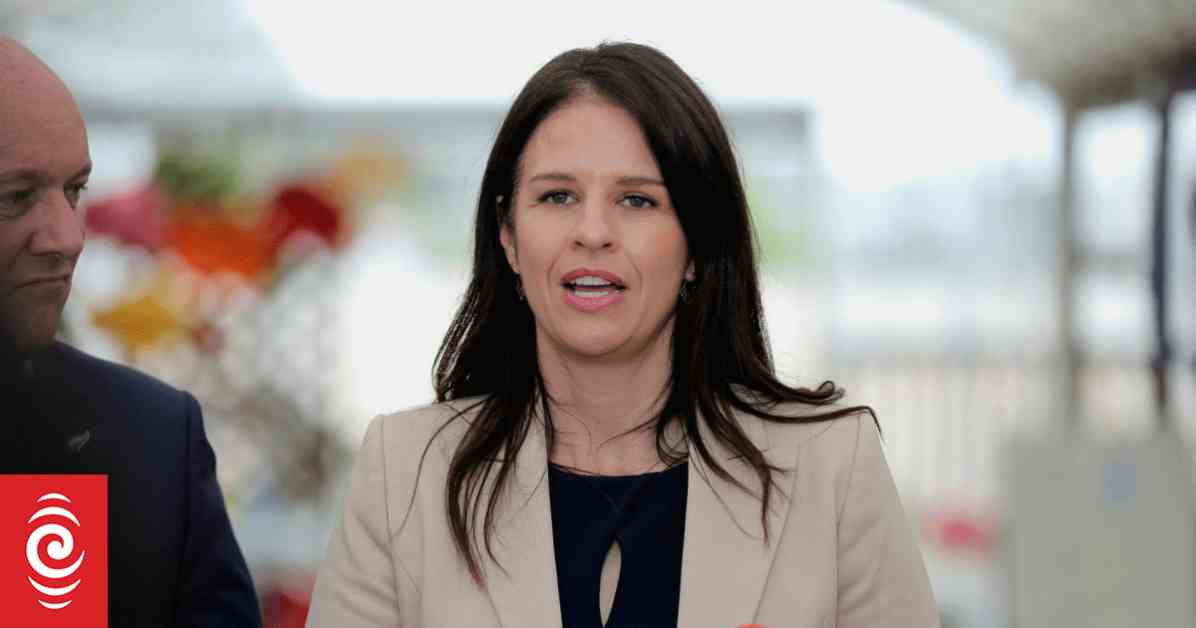Education Minister Erica Stanford recently addressed concerns raised by Associate Education Minister David Seymour regarding teacher-only days in New Zealand schools. During an appearance on TVNZ’s Q and A program, Stanford expressed her view that Seymour had overstepped his bounds by suggesting restrictions on teacher-only days without consulting her first. Stanford emphasized that as the Minister of Education, the decision regarding teacher-only days falls under her jurisdiction. She clarified that teacher-only days are essential for curriculum development and that there will be four such days during the school term.
Stanford highlighted the importance of these days for educators to focus on implementing the new curriculum effectively. She acknowledged that while efforts are being made to minimize disruptions to the school calendar, teacher-only days are crucial for professional development. Stanford assured parents that these days are dedicated to enhancing the educational experience for students by ensuring teachers are well-equipped to deliver quality instruction.
In a previous statement, Seymour stressed the significance of schools setting a positive example by maintaining regular attendance and minimizing disruptions to the academic calendar. He mentioned that it was essential for schools to make up for any lost teaching time to prioritize student learning outcomes. Although Seymour had initially proposed restrictions on teacher-only days, Stanford clarified that they had resolved the issue through communication and that teacher-only days would continue as scheduled during the school term.
Expert Perspective on Teacher-Only Days
To gain further insights into the significance of teacher-only days in the education system, we spoke to Dr. Sarah Adams, a renowned education policy expert. Dr. Adams emphasized that teacher-only days play a vital role in enhancing teaching practices and fostering professional growth among educators. She explained that these days provide teachers with valuable opportunities to collaborate, engage in professional development workshops, and align their instructional strategies with the latest educational standards.
Dr. Adams further highlighted that teacher-only days contribute to the overall quality of education by ensuring that teachers are well-prepared to meet the diverse needs of students. She underscored the importance of ongoing professional development for educators to stay abreast of emerging trends in pedagogy and curriculum design. Dr. Adams recommended that policymakers collaborate closely with educators to establish a balanced approach to scheduling teacher-only days that prioritizes both student learning outcomes and teacher professional development.
Building Stronger Partnerships in Education
As the debate surrounding teacher-only days continues, it is essential for education stakeholders to foster stronger partnerships and open lines of communication. By engaging in constructive dialogues and collaborative decision-making processes, policymakers, educators, parents, and students can work together to create a more cohesive and effective educational system. Building mutual trust and understanding among all stakeholders is key to promoting positive outcomes for students and educators alike.
In conclusion, the discourse on teacher-only days underscores the complex nature of balancing educational priorities while ensuring professional development opportunities for teachers. Through transparent communication, thoughtful planning, and a shared commitment to excellence in education, stakeholders can navigate these challenges and create a more inclusive and supportive learning environment for all. As we move forward, let us embrace collaboration and innovation to shape a brighter future for education in New Zealand and beyond.

















